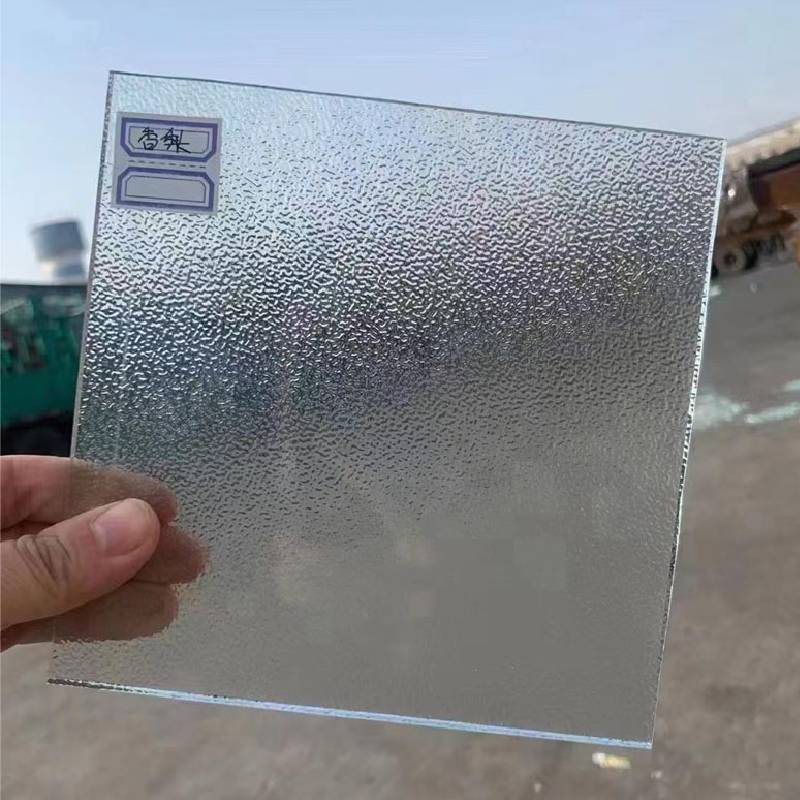Exploring the Features and Applications of 3mm Float Glass
Float glass, a widely used type of glass, is renowned for its clarity, smooth surface, and versatility. Among various thicknesses, 3mm float glass stands out for its unique properties and applications in both residential and commercial settings. This article aims to showcase the features, manufacturing process, and diverse uses of 3mm float glass.
Manufacturing Process
The production of float glass involves a fascinating process that yields high-quality, flat glass. The name float glass comes from the method by which it is produced. Molten glass is floated on a bed of molten tin, which allows the glass to form a smooth, even surface. As the glass cools, it solidifies into large sheets. After cooling, the glass is cut into various sizes, including the common 3mm thickness, which is favored for its lightweight characteristics.
The clarity of float glass, particularly 3mm, is a significant selling point. Its production process ensures that impurities are minimized, resulting in a transparent material that allows for optimum light transmission. This transparency makes it a popular choice for applications where visibility is key.
Characteristics of 3mm Float Glass
The 3mm thickness lends certain advantages to float glass. Being relatively thin, it is lighter than thicker counterparts, which simplifies installation and handling. Additionally, its thickness provides sufficient strength for many applications while maintaining flexibility. The smooth surface of the glass also contributes to its aesthetic appeal and practicality, making it easy to clean and maintain.
3mm float glass
3mm float glass has excellent optical clarity, which is crucial in various applications such as windows, display cases, and partitions
. Its chemical resistance and durability further enhance its usage in different environments, including homes, offices, and retail spaces.
Applications of 3mm Float Glass
The uses of 3mm float glass are incredibly diverse, ranging from decorative to functional applications. One of the most common uses is in residential windows, where the glass allows ample natural light while providing an unobstructed view. It is also frequently utilized in glass doors, shower enclosures, and balustrades, adding a modern touch to interior and exterior designs.
In commercial settings, 3mm float glass is often used for storefronts, display cabinets, and office partitions. Its transparency and sleek design help businesses present their products effectively and create an open, welcoming environment. Moreover, the glass can be treated or laminated to enhance its safety features, making it suitable for high-traffic areas.
In the arts and crafts sector, 3mm float glass is popular among artists and artisans for framing artwork and creating custom glass installations. Its availability in various sizes facilitates creativity, allowing individuals to explore different design possibilities.
Conclusion
In conclusion, 3mm float glass is a versatile, practical material that finds usage across many industries. Its combination of lightweight construction, excellent optical properties, and ease of handling makes it an ideal choice for various applications. Whether in residential or commercial environments, the clear and durable nature of 3mm float glass continues to meet the demands of modern architecture and design. As technology advances, we may see even more innovative uses for this remarkable material in the years to come.
 Afrikaans
Afrikaans  Albanian
Albanian  Amharic
Amharic  Arabic
Arabic  Armenian
Armenian  Azerbaijani
Azerbaijani  Basque
Basque  Belarusian
Belarusian  Bengali
Bengali  Bosnian
Bosnian  Bulgarian
Bulgarian  Catalan
Catalan  Cebuano
Cebuano  Corsican
Corsican  Croatian
Croatian  Czech
Czech  Danish
Danish  Dutch
Dutch  English
English  Esperanto
Esperanto  Estonian
Estonian  Finnish
Finnish  French
French  Frisian
Frisian  Galician
Galician  Georgian
Georgian  German
German  Greek
Greek  Gujarati
Gujarati  Haitian Creole
Haitian Creole  hausa
hausa  hawaiian
hawaiian  Hebrew
Hebrew  Hindi
Hindi  Miao
Miao  Hungarian
Hungarian  Icelandic
Icelandic  igbo
igbo  Indonesian
Indonesian  irish
irish  Italian
Italian  Japanese
Japanese  Javanese
Javanese  Kannada
Kannada  kazakh
kazakh  Khmer
Khmer  Rwandese
Rwandese  Korean
Korean  Kurdish
Kurdish  Kyrgyz
Kyrgyz  Lao
Lao  Latin
Latin  Latvian
Latvian  Lithuanian
Lithuanian  Luxembourgish
Luxembourgish  Macedonian
Macedonian  Malgashi
Malgashi  Malay
Malay  Malayalam
Malayalam  Maltese
Maltese  Maori
Maori  Marathi
Marathi  Mongolian
Mongolian  Myanmar
Myanmar  Nepali
Nepali  Norwegian
Norwegian  Norwegian
Norwegian  Occitan
Occitan  Pashto
Pashto  Persian
Persian  Polish
Polish  Portuguese
Portuguese  Punjabi
Punjabi  Romanian
Romanian  Russian
Russian  Samoan
Samoan  Scottish Gaelic
Scottish Gaelic  Serbian
Serbian  Sesotho
Sesotho  Shona
Shona  Sindhi
Sindhi  Sinhala
Sinhala  Slovak
Slovak  Slovenian
Slovenian  Somali
Somali  Spanish
Spanish  Sundanese
Sundanese  Swahili
Swahili  Swedish
Swedish  Tagalog
Tagalog  Tajik
Tajik  Tamil
Tamil  Tatar
Tatar  Telugu
Telugu  Thai
Thai  Turkish
Turkish  Turkmen
Turkmen  Ukrainian
Ukrainian  Urdu
Urdu  Uighur
Uighur  Uzbek
Uzbek  Vietnamese
Vietnamese  Welsh
Welsh  Bantu
Bantu  Yiddish
Yiddish  Yoruba
Yoruba  Zulu
Zulu 

